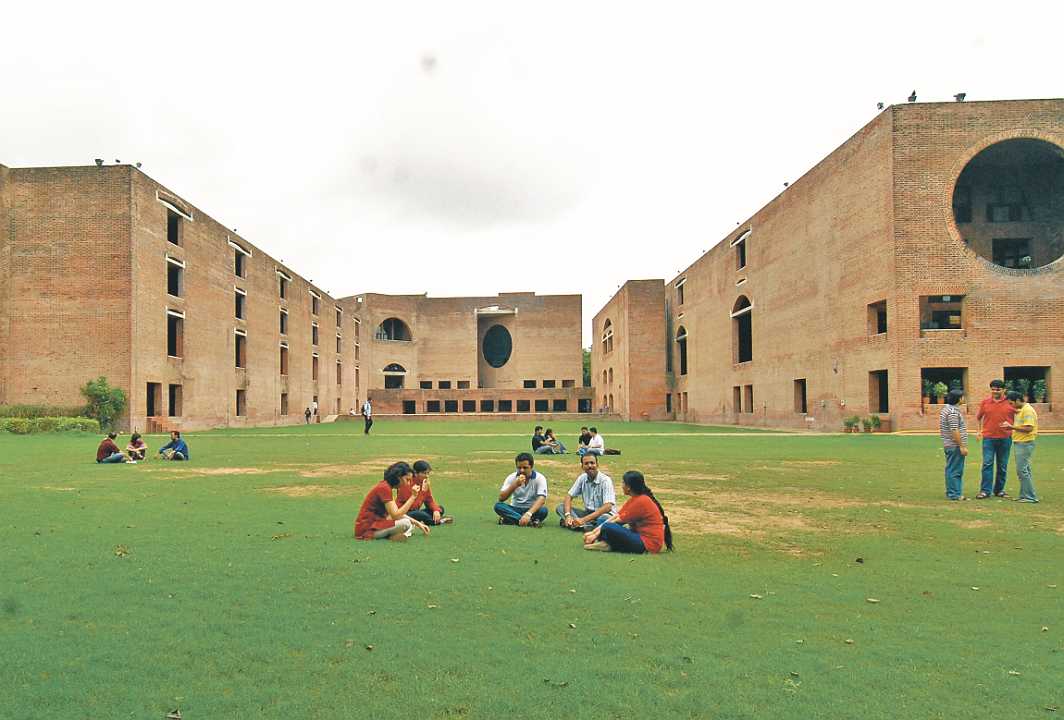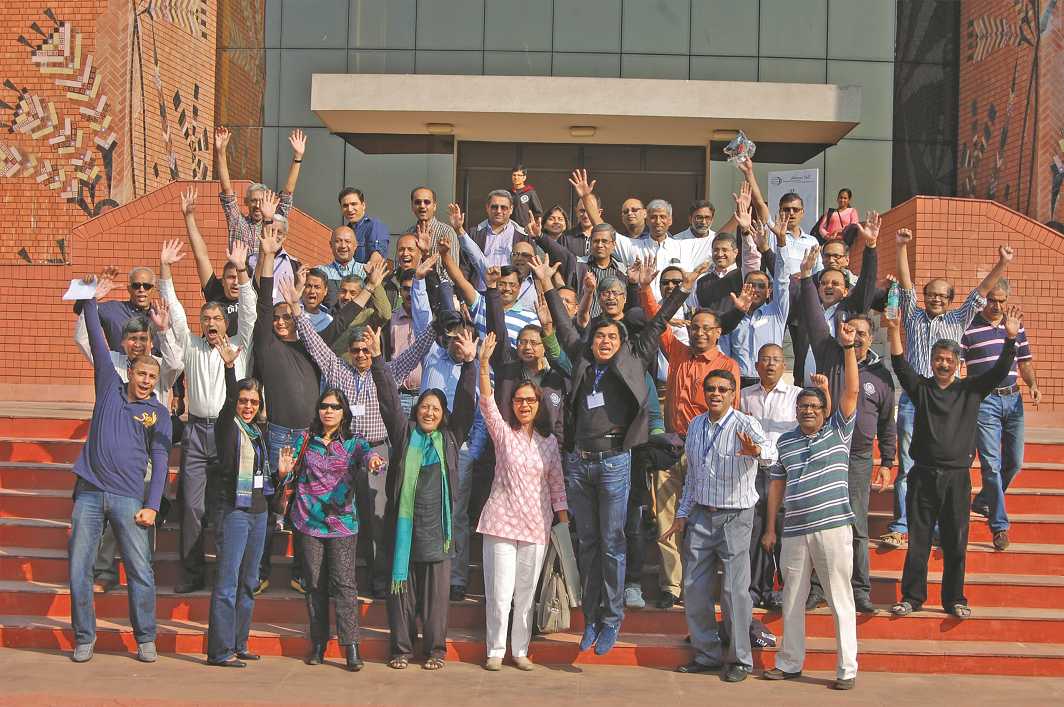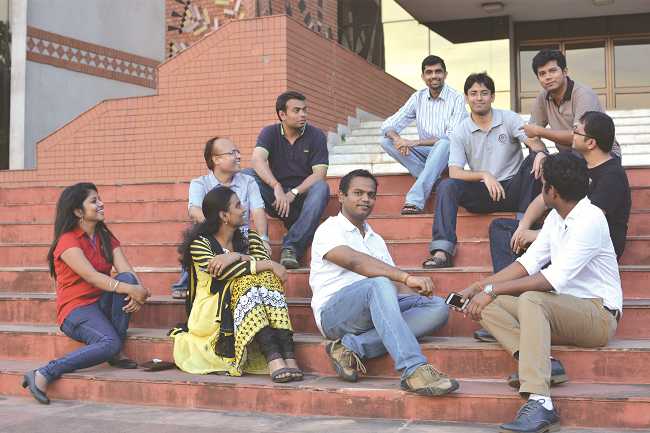Above: Illustration: Amitava Sen
Was providing autonomy to the IIMs the sole objective of a new legislation? There are several grey areas that can be subject to different interpretations and can impact the functioning of these management institutes
~By Jagdeep S Chhokar
“Lok Sabha nod to bill for autonomy to IIMs” said a headline on July 29, 2017. What warranted the attention of the media was the fact that the Lower House of parliament had passed the Indian Institutes of Management Bill, 2017. Admittedly, it certainly is a marked improvement on the one proposed in 2015. One of the main features of the revised legislation is that it gives the power to appoint chairpersons and directors of IIMs to their respective boards of governors. Earlier, this power was exclusively with the government and though the chairperson of the board had the formal powers to appoint the director, the government exercised a very close control on the appointment. But is the bill all about ensuring this “autonomy”? The devil, as they say, is in the details.
REAL MOTIVES
Before we go into the specifics, let us look at some of the broad contours of the Bill. Though the preamble says that the purpose of the Bill is “to declare certain institutes of management to be institutions of national importance with a view to empower these institutions to attain standards of global excellence in management, management research and allied areas of knowledge and to provide for certain other matters connected therewith or incidental thereto”, two clauses in the Statement of Objects and Reasons of the Bill seem to be the main points why this Bill has been introduced. These are clauses 3 and 4, and they read as under:
“3. While, the Post-graduate Diploma in Management programme (equivalent to MBA) was relatively unaffected by the absence of a formal degree, the Fellow Programme in Management (equivalent to Ph.D), without the formal degree nomenclature, has not been able to attract enough students required to develop a strong research base in the country in the field of management education and also address the faculty shortages affecting the management institutions in the country. IIMs having grown into institutions of global repute, it was felt that they may be enabled to award degree to their students, through an Act of Parliament, which would declare them as institutes of national importance”.
“4. In view of the above, it becomes necessary to have a Central Legislation, namely the Indian Institutes of Management Act, 2017 in the larger interest of students. The degree-granting power to IIMs will not only enhance the universal acceptability of degrees being awarded by these premier institutions, but also empower these institutions to attain standards of global excellence, especially in management research”.
While prima facie there is nothing wrong in giving degree-granting powers to the IIMs and it might even be a good thing to do, to couch it in terms of declaring them to be “institutions of national importance” and to “empower these institutions to attain standards of global excellence in management, management research and allied areas of knowledge” creates a suspicion about the real motives of bringing this Bill.

The Bill applies to all 20 IIMs and generally treats them in the same way, except for the distinction made for IIMs Ahmedabad and Bangalore (in Section 19), which permits them to engage “members of the societies” of these two IIMs by their respective board of governors “for advisory assistance to it, by passing a resolution in that behalf.” The reasons for this exception are not explained in the Bill.
Section 11 has some interesting provisions. Sub-section (2) of Section 11 reads as follows:
“Without prejudice to the provisions of sub-section (1), the Board shall have the following powers, namely:
(i) to create academic, administrative, technical and other posts and to make appointments thereto: Provided that the cadre, the pay scales, allowances and term of employment of such posts shall be such as may be determined by the Central Government;
(j) to determine, by regulations, the number and emoluments of such posts and to define the duties and conditions of services of the academic, administrative, technical and other staff;…”
The first confusion here is that while the “pay scales, allowances” of “such posts shall be such as may be determined by the Central Government”, the Board will have the “powers” “to determine, by regulations, the number and emoluments of such posts…”. In the normal course, “emoluments” and “pay scales and allowances” should have a lot in common, but it appears that the framers of the Bill had some other differences in mind which are not clarified anywhere in the Bill.

Going further, the sub-section (l) of the same section says “to pay, variable pay to the Director of the Institute on the basis of performance objectives as may be specified by the regulations;…” This is undoubtedly a good decision.
LACUNAES EXIST
There is, however, one possible lacuna in the provisions for appointment of the director. While Section 16(2) is very clear that “the Director shall be appointed by the Board”, the same sentence goes on to say “on such terms and conditions of service as may be prescribed”. The Bill does not clarify who, precisely, will prescribe the “terms and conditions of service”. In the normal course, it would be assumed that it would be done by the Board but it is useful not to leave such ambiguities while framing laws which may, at some later stage, be the subject of controversy and differing interpretations.
History of Autonomy

The issue has quite a history. When the first two Indian Institutes of Management (IIMs) were set up in Calcutta and Ahmedabad in 1961, they were “autonomous” bodies owned by registered societies. These did not have “degree-granting” powers as that was available only to universities or could be granted specifically by parliament by passing a law. The institutes granted “diplomas” instead of “degrees” and offered Post Graduate Diplomas in Management (PGDM) and Fellow Programmes in Management (FPM)—equivalent to a PhD. The PGDM and the FPM were recognised as “equivalent” to MBA and PhD degrees respectively by the Association of Indian Universities and the Ministry of HRD for purposes of employment and further education.
Matters continued that way over the years. Every once in a while, some student or parents of a student would raise the issue of not granting a degree but the acceptance of the IIM qualification by the corporate sector, the government, and the academia in India and abroad (many IIM graduates did PhDs in prestigious universities in the US and Europe and became distinguished academics) kept things going. There were proposals to give IIMs a “degree-granting” status through an Act passed by parliament but such proposals were often resisted, particularly by older and well-established IIMs (as by now the number of IIMs had proliferated) due to the apprehension that this might lead to greater interference by the government.
The newer IIMs, being entirely dependent on the government, however, welcomed such an initiative. As the IIMs gained widespread recognition, the government’s desire to pass a Bill in parliament seemed to increase.
A Bill was introduced in 2015 which came under criticism and was thence allowed to lapse. A discussion continued and the Bill currently passed is the outcome.
There are two other areas where the Bill could have been clearer. One is the provision for a “Coordination Forum” described in Chapter V, in Sections 29 and 30. Several provisions in these two sections are ambiguous and open to differing interpretations. This is an area which may, in future, lead to controversies because some provisions have the potential which may lead to avoidable tussles between the boards and the government on issues of control.
The other is about making “rules” for the implementation of the Act. As is usual, Section 34 gives the central government power to “make rules, for carrying out the provisions of this Act”. Making rules is a very critical function which has the potential to very significantly influence how and to what extent the intentions of the legislation can, and are, implemented. If the “rules” are made with the same intentions that the text of the Bill appears to reflect, this law can help IIMs “attain standards of global excellence in management, management research and allied areas of knowledge,” as the Preamble to the Bill envisions.
—The writer was former director-in-charge of IIM, Ahmedabad



